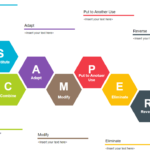Introduction to Yudhijit Bhattacharjee’s
Have you ever wondered why our first instinct sometimes leans toward deception? Yudhijit Bhattacharjee delves deep into this perplexing aspect of human nature in his exploration of the “Science of Good and Evil.” Through captivating insights, he not only unravels the reasons behind our tendency to lie but also sheds light on its broader implications for society. Whether it’s a harmless fib or a more significant falsehood, understanding the psychology behind lying reveals much about who we are as individuals and as a collective. Join us on this journey through Bhattacharjee’s research and discover how honesty—or the lack thereof—shapes our relationships and moral fabric.
The Human Tendency to Lie: Exploring the Psychology Behind Lying
Lying is a perplexing behavior deeply embedded in human nature. It often arises from our instinct to protect ourselves and others. The motivations can range from self-preservation to social acceptance.
Psychologically, the act of lying triggers complex cognitive processes. When we fabricate stories, our brains engage in a delicate dance between honesty and deceit. This mental juggling can create tension, as individuals grapple with their conscience.
Interestingly, research suggests that many people lie more frequently than they realize. Small fibs become commonplace in everyday interactions. They serve as tools for navigating social dynamics—like smoothing over awkward situations or sparing feelings.
Understanding this trend sheds light on societal norms surrounding truthfulness. It raises questions about morality and ethics in various contexts—from personal relationships to political discourse—and prompts reflection on what it truly means to be honest in an increasingly complicated world.
Understanding the Consequences of Lying
Lying can ripple through our lives in unexpected ways. The immediate gratification of a falsehood may fade, but the repercussions linger.
When we deceive, trust begins to erode. Friends and family might feel betrayed. This damage often requires more than mere apologies to mend.
In professional settings, dishonesty can derail careers. A single lie could lead to lost opportunities or tarnished reputations that take years to rebuild.
Society itself feels the impact as well. Widespread deception breeds skepticism among communities—people become wary of each other’s intentions.
Moreover, habitual lying can alter one’s self-perception. Over time, it becomes harder to discern truth from fiction within oneself.
Understanding these consequences sheds light on why honesty is not just a moral choice; it’s essential for maintaining healthy relationships and thriving communities.
How Lying Affects Relationships and Society
Lying weaves a complex web that entangles relationships and society. Trust, the foundation of any bond, is fragile. A single lie can shatter it in an instant.
In personal relationships, deceit breeds suspicion and resentment. Partners may find themselves questioning every word or gesture. This erosion of trust often leads to communication breakdowns.
On a larger scale, society feels the ripple effects of widespread dishonesty. When lies permeate cultural narratives—whether through media or politics—it creates division and cynicism among people.
Communities thrive on shared values and transparency, but when deception takes hold, social fabric frays. People become isolated in their distrust, undermining cooperation essential for progress.
Understanding how lying impacts both intimate connections and societal cohesion reveals much about our human nature—and the crucial need for honesty in all aspects of life.
Can We Overcome Our Natural Inclination to Lie?
Overcoming our natural inclination to lie is a complex challenge. It requires self-awareness and honesty with ourselves first. Acknowledging that we have this tendency can be the first step toward change.
Mindfulness plays a crucial role in this process. By being present, we can catch ourselves before we fabricate excuses or bend the truth. This awareness allows for more authentic interactions.
Additionally, fostering an environment where honesty is valued encourages openness. When people feel safe expressing the truth without judgment, they are less likely to resort to deception.
Education also matters; understanding the implications of lying can inspire individuals to choose transparency over deceit. This shift may not happen overnight, but small changes in behavior can lead to significant transformations over time.
By examining our motivations and embracing vulnerability, we might just find a path away from dishonesty toward genuine connections.
Bhattacharjee’s Research on Honesty and Its Implications for Humanity
Yudhijit Bhattacharjee’s research delves deep into the complexities of honesty in human behavior. He investigates how our moral compass functions and why it often fluctuates between truth and deceit.
His findings reveal that lying is not merely a personal choice but a social phenomenon influenced by various factors, including culture and environment. By examining these influences, he sheds light on the reasons behind our tendencies to bend the truth.
Importantly, his work highlights that honesty isn’t just an individual virtue; it has profound societal implications. When trust erodes, communities suffer. Bhattacharjee emphasizes that fostering environments where honesty thrives can lead to more cohesive relationships and stronger societies.
Through his research, we begin to understand the delicate balance between good and evil within ourselves—a exploration crucial for addressing ethical dilemmas in today’s world.

Conclusion: The Importance of Being Honest in
Science of Good and Evil by Yudhijit Bhattacharjee. Honesty is a cornerstone of human interaction. It shapes our relationships, influences our choices, and underpins the very fabric of society. The insights from Yudhijit Bhattacharjee’s exploration into the Science of Good and Evil reveal just how complex the act of lying can be.
Understanding why we lie provides critical context for improving ourselves and nurturing healthier connections with others. As Bhattacharjee illuminates, recognizing our natural inclination to deceive doesn’t have to mean surrendering to it.
Instead, embracing honesty fosters trust—a vital element in any relationship. When we choose transparency over deceit, we build stronger bonds based on mutual respect and understanding. This choice not only enhances personal interactions but also contributes positively to societal dynamics as a whole.
The journey toward greater honesty may seem challenging at times, especially given its deep-rooted presence in human behavior. However, acknowledging this struggle equips us with the awareness needed for positive change. By striving for integrity in our daily lives—both big and small—we take significant steps toward cultivating a more ethical world.
Fostering an environment where honesty thrives encourages all individuals to engage authentically with one another. Each honest action has a ripple effect that extends beyond singular moments—it enriches communities and strengthens humanity’s collective bond against deception.










